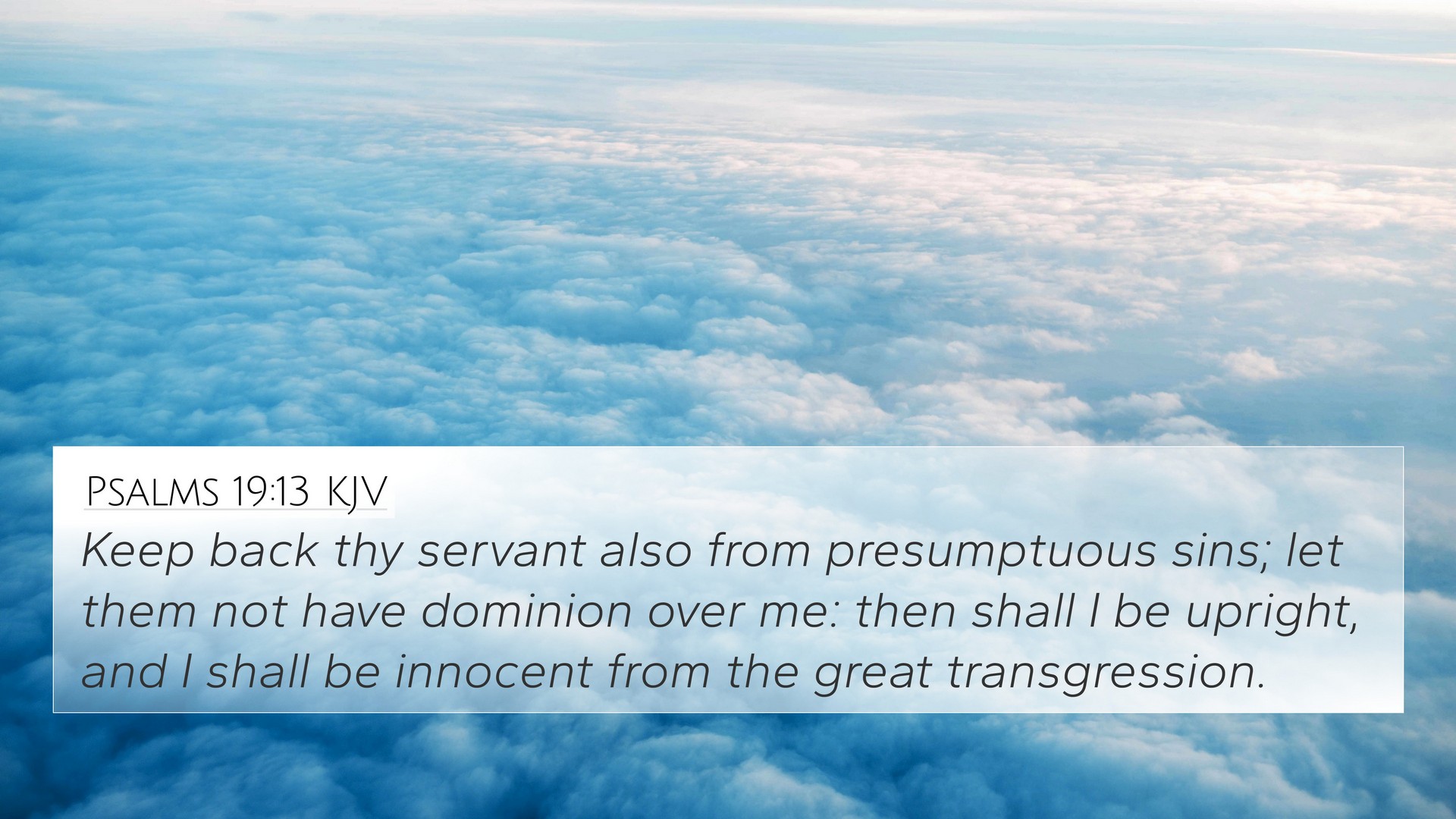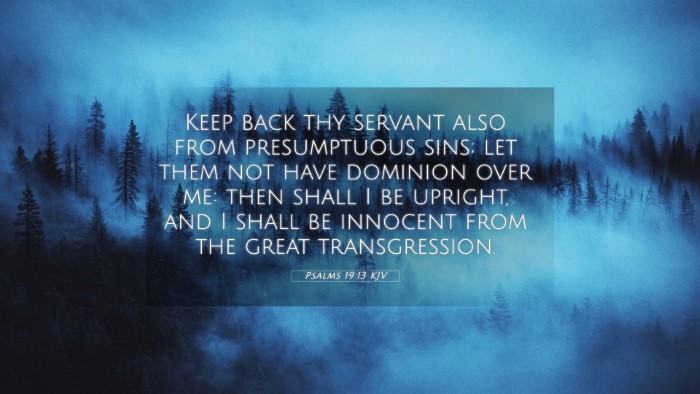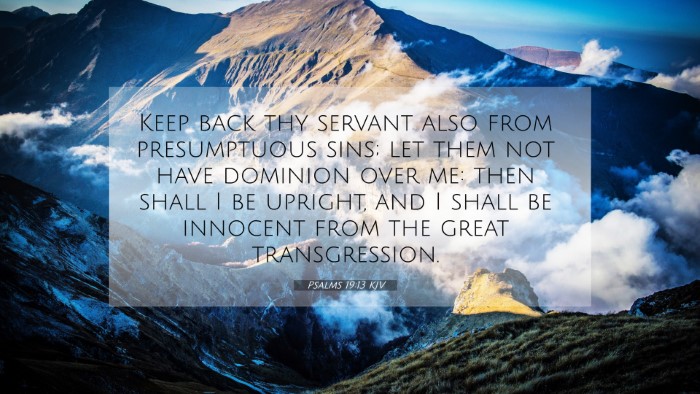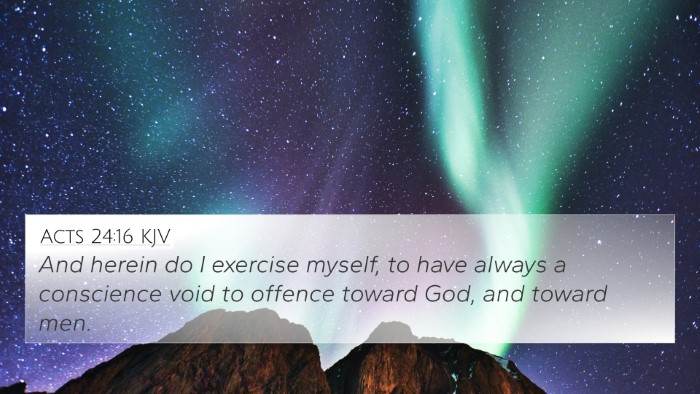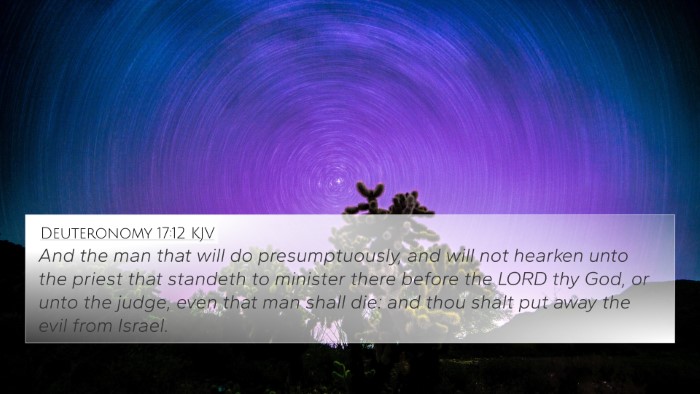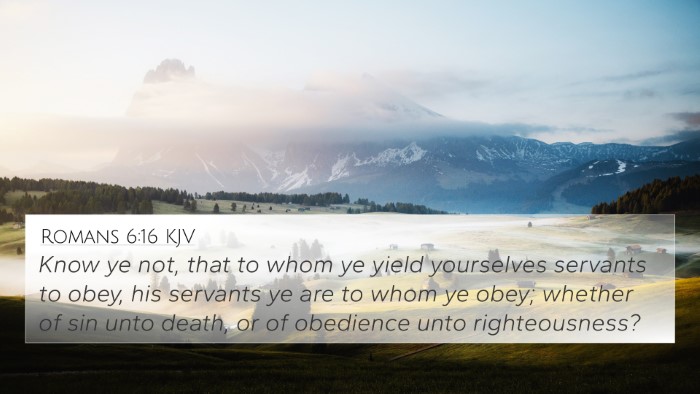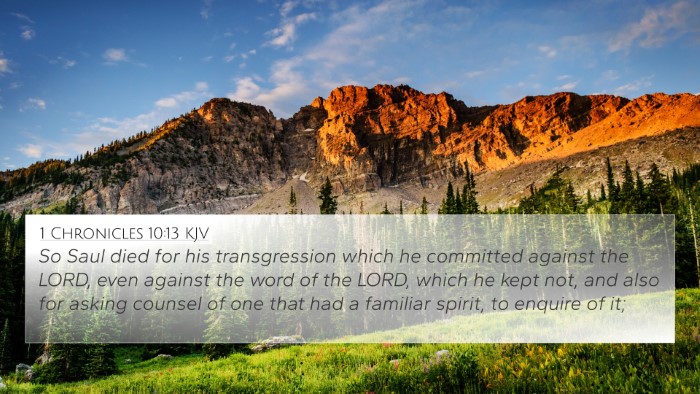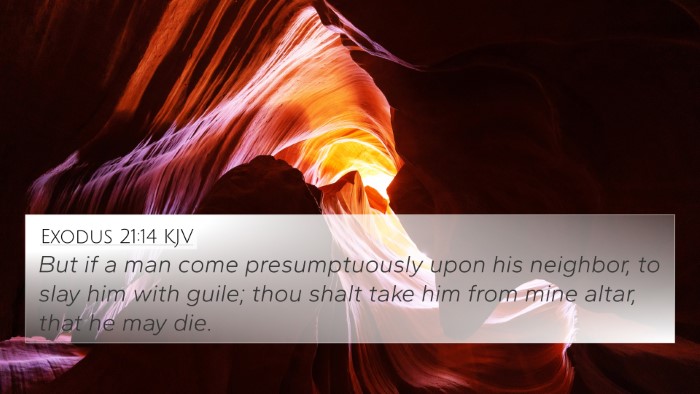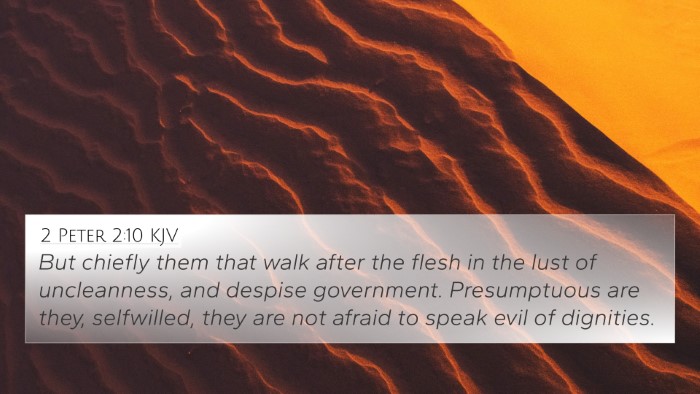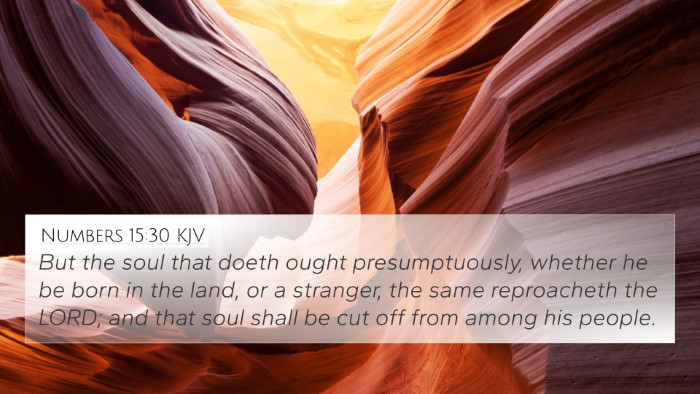Psalms 19:13 - Summary and Interpretation
Bible Verse: Psalms 19:13
"Keep back thy servant also from presumptuous sins; let them not have dominion over me: then shall I be upright, and I shall be innocent from the great transgression."
Meaning and Explanation
The verse from Psalms communicates a heartfelt plea from the psalmist for divine assistance in avoiding sins of arrogance and willfulness. Here, the psalmist recognizes the potential for sin to dominate and enslave, emphasizing the need for God's intervention to maintain righteousness and purity in life.
Insights from Commentaries
-
Matthew Henry:
Henry emphasizes that "presumptuous sins" refer to those willful acts that arise from pride and disregard for God's commandments. He articulates the danger of such sins as leading to a greater transgression, which the psalmist wishes to avoid through God's protection.
-
Albert Barnes:
Barnes notes that the request to be kept back from sin signifies a recognition of human weakness and the necessity of divine aid. He highlights that the psalmist desires not just forgiveness but also freedom from the power of sin, aspiring to be upright and innocent in the sight of God.
-
Adam Clarke:
Clarke details the importance of the psalmist's awareness of the dangers posed by sin and their classification as “presumptuous,” which implies deliberate and conscious acts. He suggests that the verses reflect the intense struggle between the believer's desire for holiness and the threat of sin.
Cross-References
This passage can be linked to several other Bible verses that expand on similar themes:
- 1 John 1:9: "If we confess our sins, he is faithful and just to forgive us our sins, and to cleanse us from all unrighteousness." - Highlights the importance of confession and cleaning from sin.
- James 4:7: "Submit yourselves therefore to God. Resist the devil, and he will flee from you." - Speaks to the need for divine submission to overcome sin.
- Romans 6:14: "For sin shall not have dominion over you, for you are not under the law, but under grace." - Emphasizes freedom from sin's dominion through grace.
- Galatians 5:1: "Stand fast therefore in the liberty wherewith Christ hath made us free, and be not entangled again with the yoke of bondage." - Urges believers to remain free from sin's chains.
- Proverbs 28:13: "He that covereth his sins shall not prosper: but whoso confesseth and forsaketh them shall have mercy." - Stresses the necessity of acknowledging and turning from sin.
- Hebrews 12:1: "Wherefore seeing we also are compassed about with so great a cloud of witnesses, let us lay aside every weight, and the sin which doth so easily beset us, and let us run with patience the race that is set before us." - Encourages the shedding of sin to achieve spiritual goals.
- Matthew 5:48: "Be ye therefore perfect, even as your Father which is in heaven is perfect." - Calls for the pursuit of perfection and holiness.
Thematic Connections
This verse also forms connections with broader themes found throughout the Bible:
- Divine Support Against Sin: The consistent theme of seeking God's help in resisting sin is echoed in both Testaments.
- Righteousness and Purity: The desire for personal purity resonates with verses that emphasize holiness as a standard for believers.
- Consequences of Sin: The recognition of sin's consequences and the reality of transgression are recurrent themes in the Bible.
Tools for Cross-Referencing
For those interested in exploring further, there are several tools and resources for effective Bible cross-referencing:
- Bible Concordance: A significant tool for studying scriptural references and connections between verses.
- Bible Cross-Reference Guide: A practical resource for identifying related verses.
- Bible Chain References: An organizing method that allows believers to see a thematic progression in Scripture.
Conclusion
In Psalms 19:13, we observe a profound engagement with the dynamic between sin, righteousness, and the need for God's intervention in human affairs. This verse encapsulates a universal struggle against sin while also providing assurance of divine mercy and grace. The connections with other scriptures enrich one's understanding and offer a broader perspective on the topics of sin and righteousness in the Christian walk.
